British Empire in the 19th century
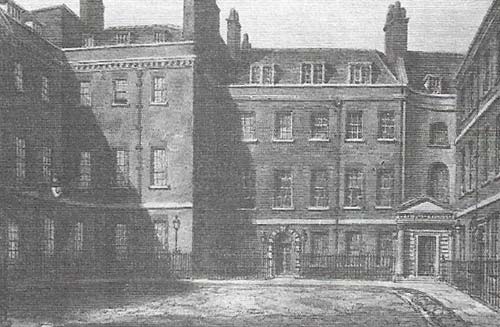
Figure 1. The Colonial Office was established as a separate department in 1812, but began to exert great influence in government only with the appointment of “Mr Over-Secretary” James Stephen (1789–1859) in 1836. He remained there until 1847 as permanent under-secretary, and took the prevailing mid-century view that the colonies were a trust to be upheld, but also a liability bringing the mother country great difficulties and few rewards.
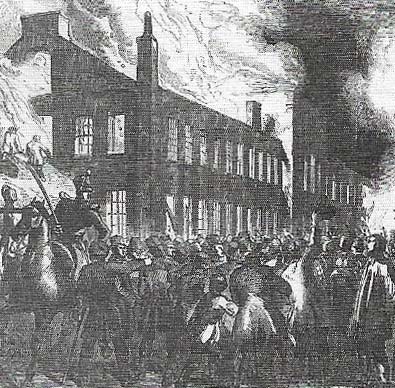
Figure 2. In 1849 English Canadians burned their Parliament building in protest against the Rebellion Losses Bill, which compensated French rebels as well as English loyalists for the loss of property incurred in the Lower Canada rebellion of 1837. That rebellion, and its counterpart in Upper Canada, had been the occasion for Lord Durham's famous report (1839), which recommended granting responsible government to Canada.
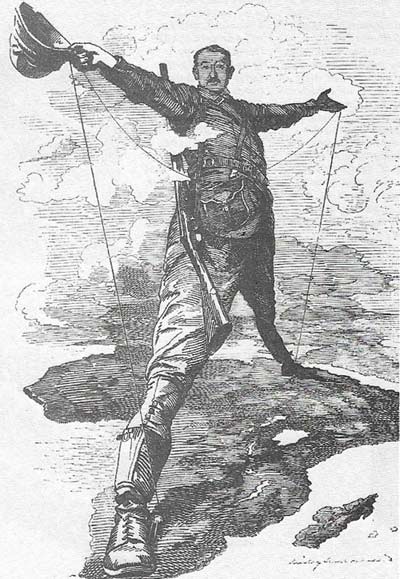
Figure 3. Cecil Rhodes, the greatest imperialist-entrepreneur, built up a huge diamond and gold empire in Southern Africa. He also established Southern and Northern Rhodesia as new colonies.
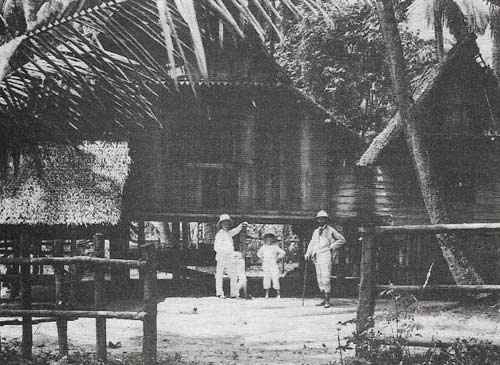
Figure 4. Malay House, photographed in the 1880s, gave governors a residence in the native style. British interest in Malaya began with the East India Company's acquisition of Penang Island in 1786 in search of goods to trade with China. In 1819 Thomas Stamford Raffles (1781–1826) set up a settlement in Singapore. This finally came under the official control of the Colonial Office in 1867.
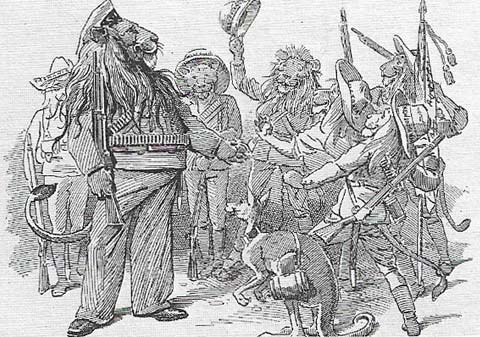
Figure 5. The white colonies assisted Britain in the South African (Boer) War of 1899–1902. Australia became federated and self-governing in 1901. Its states are shown here as cubs supporting the British lion.
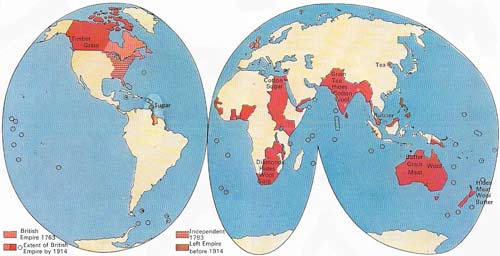
Figure 6. The British Empire at its greatest extent in 1914 was the largest empire in the history of the world. Although many of the smaller colonies were of little financial benefit to Britain, the larger colonies, especially the "white" ones, were important sources of cheap raw materials for the mother country. There were therefore many vital sea routes to be protected; many of the small islands and African coastal territories acquired in the course of the century had this strategic importance. The most important of these routes was the Suez route to India, which became central to British imperial strategies after Disraeli bought a controlling interest in the Canal for the country in 1875.
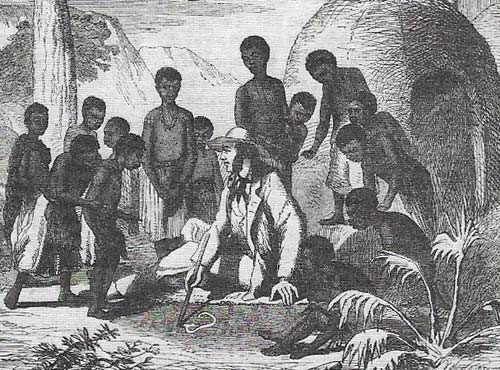
Figure 7. The Empire-building of the 19th century was the product of a complex mixture of motives. It was often the work of private individuals – traders, business investors and missionaries, such as this one in Africa – who induced political control to follow in their wake. Quarrels between missionaries, who tended to defend native interests, the less selfless traders, and the local populace, drew the government into official supervision of places such as Guinea and Bechuanaland which they would rather have left alone. Imperial ideas at home were very different from those of men overseas.
In 1815 Britain was the world's greatest colonial power. Although it had lost the American colonies in the 1700s, it had asserted its claims elsewhere: in British North America, in India, in Southern Africa, and in the valuable sugar islands of the Caribbean. Outposts had also been established in Australasia; the New South Wales's penal colony began in 1788 and missionaries made contact with New Zealand Maoris in 1814.
The imperial debate
However interested missionaries and merchant traders were in the Empire, government circles and the population as a whole were doubtful of its value. The loss of the American colonies in 1776 and the successful rebellions of Spain's Latin American colonies in the 1820s suggested the notion that as colonies ripened to maturity they fell naturally from the mother tree.
The spectacular growth of trade between the United States and Britain after 1783 demonstrated that trade did not have to follow the flag. From 1815 until the 1870s, it was orthodox opinion that Whitehall should not impede the gradual devolution of the empire, and only in the last decades of the nineteenth century did Britain once more become a self-consciously imperialist power.
Lord Durham's epoch-making report of 1839, advocating a measure of self-government for Canada (Figure 2), set the tone of the early Victorian colonial debate. That debate was conducted not between imperialists and anti-imperialists, but between those who argued for an active policy of dismemberment and those who preferred to leave matters to the course of time. Even Benjamin Disraeli (1804–1881), who in the 1870s was to sound the note of the new imperialism, in 1849 described the colonies as a millstone around the mother country's neck.
Between 1815 and 1870 only one-sixth of the £1,000 million in credit accumulated abroad was in the colonies. The cost of their defense lay heavily on the Exchequer, and the abolition of the slave trade in 1807 and of slavery in 1833 ended the triangular trade between Britain, Africa and the New World which had proved so lucrative in the 18th century. After the repeal of the Corn Laws in 1846, therefore, and the decline of protectionism, the old mercantilist system was dismantled.
In other ways, too, colonial ties were weakened. In 1852 New Zealand was granted a self-governing constitution and the Church establishment there was abolished. In Canada, a year later, the lands set aside for the support of the Church were given over to the disposal of the colonial assembly. In 1867 the four provinces of British North America became the united, self-governing confederation of Canada. In South Africa, responsible government was granted to Cape Colony in 1872 and to Natal in 1893.
India and the new colonies
The exception to this process of relaxation was India. After the Mutiny of 1857, the East India Company lost its share in the government of India, which was placed directly under the Crown department, the Board of Control. Indeed, there was everywhere a sharp distinction drawn between the white settlement colonies, extensions of British stock, and the non-white colonies, acquired by conquest and attracting few permanent emigrants (Figure 4).
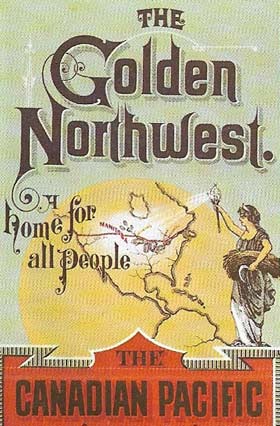 |
| Emigration, encouraged by reformers such as Edward Gibbon Wakefield (1796–1862) and Thomas Carlyle (1795–1881), eased the population problems in Britain. Most emigrants went to the Americas. The peak decades were the "hungry forties", when more than 1.5 million people left Britain, and the fifties, when the figure was more than 2 million. Many of the emigrants were people driven from Ireland by the great famine of 1845–1847 and by the pressure of population in a rural subsistence economy. |
There was also a distinction between the "formal" empire built up in the eighteenth century and the "informal" empire of the nineteenth century. Missionaries, traders, and explorers went into Asia and Africa (Figure 7), and governments were drawn, usually reluctantly, to follow them. The necessity of protecting British commercial interests lay behind the acquisition of Egypt, British New Guinea and North Borneo in the 1880s.
By the 1880s the private companies that carried British influence into the tropical zone had a semi-official sanction. Imperial administration then followed in the wake of commercial penetration. It was the financial empires of men such as Cecil Rhodes (1853–1902) (Figure 3) that drew Britain deeper into the whirlpool of southern Africa. The area west of the Transvaal became British in 1885, and the territories that became Southern and Northern Rhodesia were taken over. Kenya and Uganda became British protectorates in the 1890s.
Much of the impetus for this new era of expansion derived from the threat posed to Britain's former trading supremacy by the industrial competition from Germany, France, Belgium and America. Moreover, surplus industrial capital brought a quicker return in Africa than in Britain.
Consolidation and evolution
The imperial revival, sounded by Rudyard Kipling (1865–1936) and cloaked in the language of civilizing mission, was not an issue that sharply divided the political parties. Voices were raised to argue that the trend of self-government in the white settlement colonies should be halted and the old empire consolidated as a bulwark against foreign competition. Proposals for a permanent imperial council and a revived scheme of colonial preferential tariffs came to nothing. Six colonial conferences held between 1887 and 1911 marked the beginning of the general evolution of the Empire (Figure 6) into a commonwealth of self-governing states. The value of the conferences was shown by the speed with which the Dominions entered the war on behalf of the Empire in 1914.
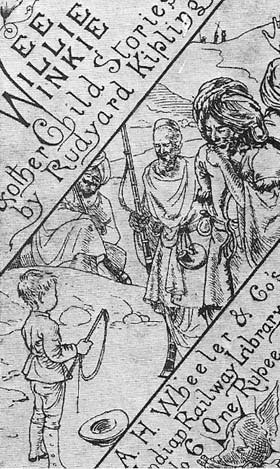 |
| Rudyard Kipling was the bard of the Empire. His novels and poems were inspired by the glory of imperialism, yet "The White Man's Burden" stressed the awesome responsibility of empire. |
